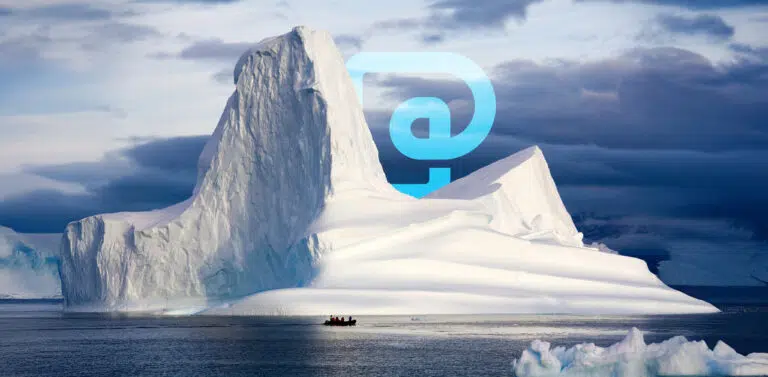As you embark on your next adventure, the team at Polar Escapes have created this handy guide to expedition cruises based on our extensive experience to help you plan your trip. Here is what it covers:
- What is expedition cruising?
- How it differs from regular cruises
- An overview of the best expedition cruise destinations
- Expert advice about how to choose your cruise line and ship.
Let’s set sail!
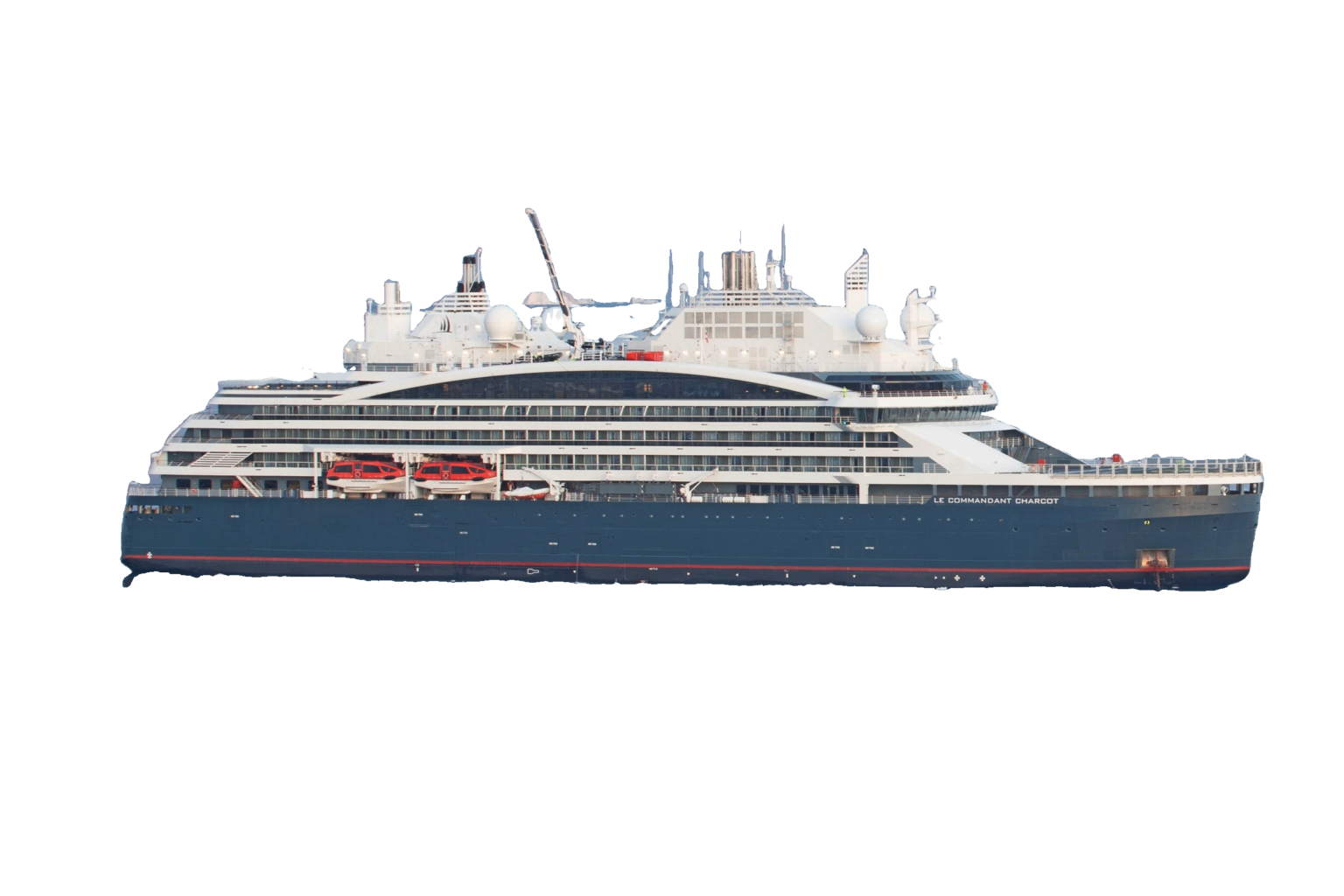
Table Of Contents
What Is Expedition Cruising?
Expedition cruising is a ship-based exploration of some of the planet’s most beautiful and remote places, often without human inhabitation.
The first expedition cruise to Antarctica with travelers departed in 1966, and since then, interest has grown year on year. While discovering remote places started in the polar regions, it is now a worldwide choice for curious travellers looking to explore less-visited places.
Expedition cruising is geared towards travellers who want to follow their inner explorers and gain a more profound understanding of the places they visit and wildlife through onboard naturalists and guides.
They involve active exploration on small, purpose-built ships equipped with Zodiac inflatable boats for off-ship excursions. Led by a team of expert guides, each journey is a life-affirming way to see places that are otherwise impossible to reach.

What’s the difference between cruising and expedition cruising?
The main differences between traditional and expedition cruises are the ship’s size and the travel style.
Traditional cruises take place on larger ships, often with over 2000 guests. They visit multiple ports, where guests disembark to join tours.
Expedition cruises take place on much smaller ships, with an average size of 150 and 200 guests. The cruise style is heavily geared toward exploring remote places that are often hard to reach.
Using the expedition ships onboard Zodiacs, the guide team take guests exploring remote locations that bigger ships cannot reach. Zodiacs allow travellers to step ashore on remote beaches in places like Antarctica and the Galapagos Islands that are otherwise inaccessible. Unlike traditional cruises, they rarely visit ports and instead focus on exploring the wilderness.
Whilst traditional and expedition cruises involve ship-based travel, the style of the trips could be the same. If you feel out of place on a large cruise ship, expedition cruising could be for you!
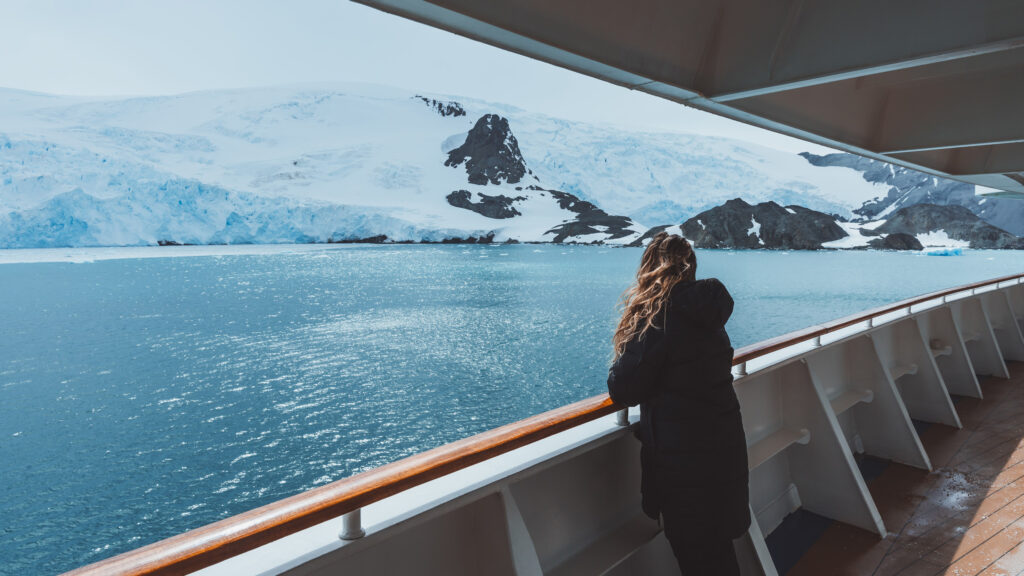
Expedition Cruise Destinations
Voyages occur in some of the world’s most pristine and natural destinations accessible by ship. As the expedition cruising trend grows, new and exciting destinations are added each year. Here are some of the highlights:
- Polar regions – Arctic and Antarctica
- New Zealand and the sub-Antarctic
- Patagonia
- Galapagos Islands
- Amazon River & South America
- West Africa
- Central America and Baja California
- Indonesia
- Alaska
- Kimberly in Australia
- Great Lakes
- Scotland
At Polar Escapes, we specialise in expedition cruises to the polar regions. To inspire you, here are some of the top destinations we love to explore:
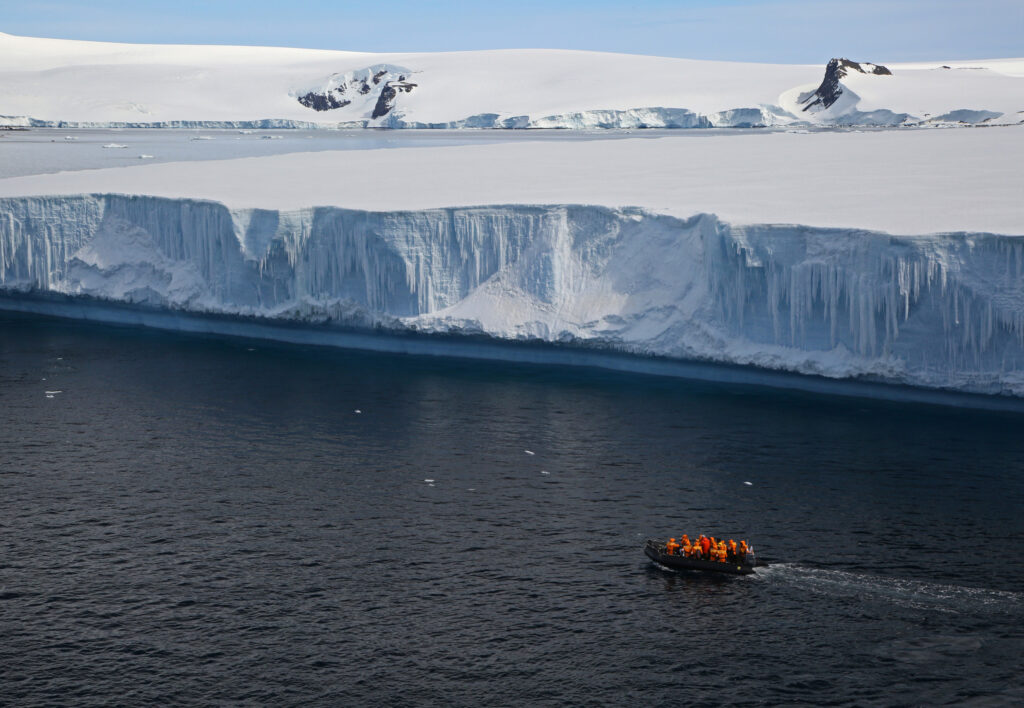
Antarctica
The 7th continent is the most popular place in the polar regions to explore on an expedition cruise. Choose from itineraries to explore the Antarctic peninsula or the remote Ross Sea region.
South Georgia
A remote, sub-Antarctic Island in South Georgia heralds one of Earth’s most spectacular wildlife displays. Over one million penguins call the island home.
The Falkland Islands
Expedition cruises visiting South Georgia and Antarctica often call at this archipelago of islands rich in wildlife located 400 miles off the coast of South America.
Arctic
The Arctic is a vast region in the northern hemisphere comprising of several different expedition cruising destinations including Svalbard, Iceland, Greenland, the Northwest Passage and the North Pole.
Svalbard
A Norwegian archipelago of frozen islands, Svalbard is one of the best places to see polar bears, the Kings of the Arctic, in their natural habitat.
Greenland
Greenland’s largest island on Earth has thousands of miles of tranquil, iceberg-filled fjords and epic scenery. The east and West coast are a true explorer’s playground.
The Northwest passage
Sail the intrepid sea passage linking the Atlantic and Pacific Oceans through the remote Canadian Arctic—perfect for the inner explorer in you.
The North Pole
Reach the most northerly point on Earth on a specialist icebreaker cruise for the ultimate destination in the polar regions.
What will I do on an expedition cruise?
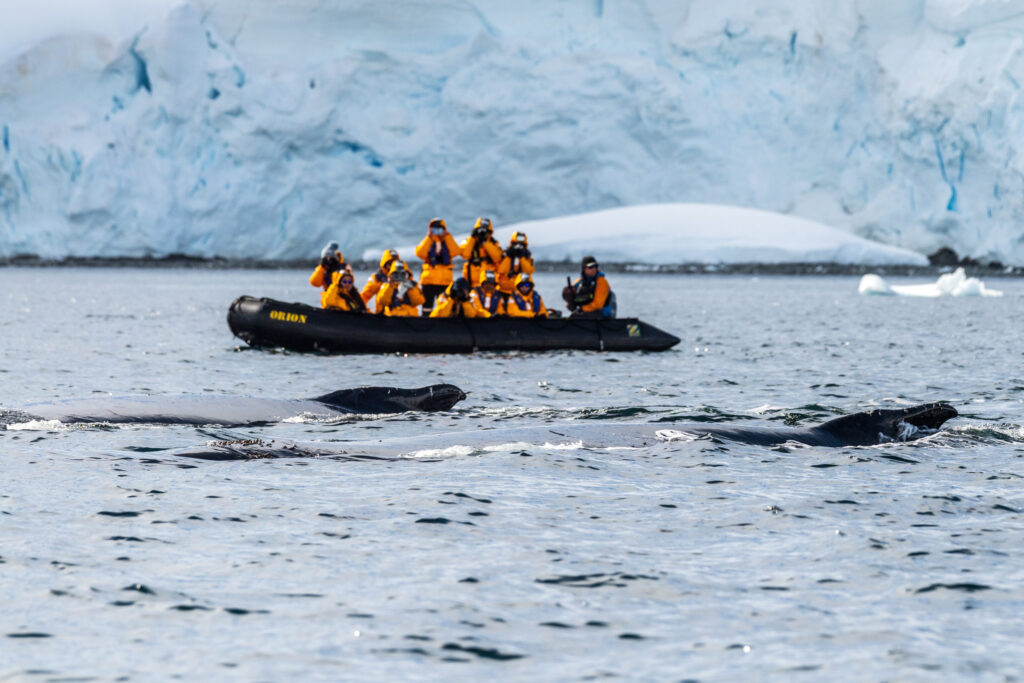
Each day on your voyage will be a sea day, where you sail from one place to the next, or an expedition day full of adventure.
Sea days are an excellent time to get acquainted with the expedition team and fellow travellers. During the days, you can participate in lectures and talks from the ships’ onboard naturalists and guides to understand better the places you are visiting. It’s an excellent chance to build anticipation for your first shore landing.
Sea days offer a chance to kick back and relax. Enjoy the ship’s onboard amenities, such as saunas with panoramic views, on-deck hot tubs, and spas.
Expedition days are active. The expedition leader will brief the group on the day’s plan. Remember that plans can change as fast as the weather!
The day’s first activity will likely be a Zodiac cruise or a shore landing. Depending on your chosen destination, wildlife viewing and exploring sites of natural interest, such as glaciers, make up most of the time on exploration days.
If you have signed up for optional activities such as sea kayaking, it’s time to take to the water.
On most expedition cruises to the polar regions there will be an opportunity to take a polar plunge.
Expedition cruise ships
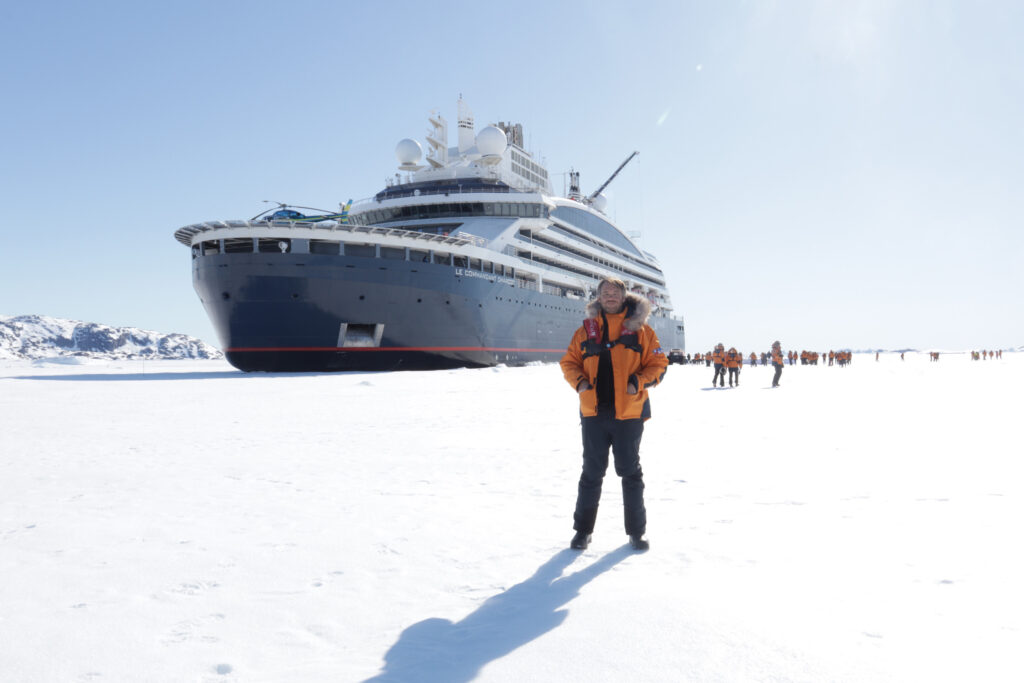
The author standing next to Le Commandant Charcot on a sea ice landing in Greenland
Expedition cruise ships are purpose-built vessels specifically designed to explore remote places.
In the polar regions, ships are built with ice-strengthened hulls, making it safe to venture into areas where there is sea ice.
Their smaller size sets expedition cruise ships apart from traditional cruise ships. The average ship takes between 150 and 200 guests. Some of the larger ships take up to 500 guests, but in my experience, there is too much time spent waiting when the number exceeds 200. The smallest ships take 75 guests in Antarctica and between 12 and 50 in the Arctic.
Here are some of the key features of expedition ships.
- They are kitted out with inflatable Zodiacs and other adventure gear, such as kayaks, which enable exploration on a whole new level.
- Onboard, a team of specialists, guides, and naturalists enrich the experience at every stage.
- Ships have advanced capabilities and safety standards, allowing them to explore remote areas safely. For example, Le Commandant Charcot is a purpose-built icebreaker capable of sailing to the North Pole and remaining autonomous for up to three months.
- Ships feature advanced sustainability features, such as recycled heating, waste management systems, and energy-efficient designs, to minimise their impact and provide sustainable travel experiences.
It’s important to choose an expedition ship that aligns with your interests. We always recommend the smallest ship size to maximise time ashore.
To find out more please see our guide How To Choose Your Expedition Cruise Ship.
At Polar Escapes, we offer the largest selection of expedition cruise ships. Our best sellers include Ultramarine, Sylvia Earle, and Le Commandant Charcot.
To help you find the perfect expedition ship for you please see our article 35 Best Expedition Cruise Ships.
Expedition Cruise Lines
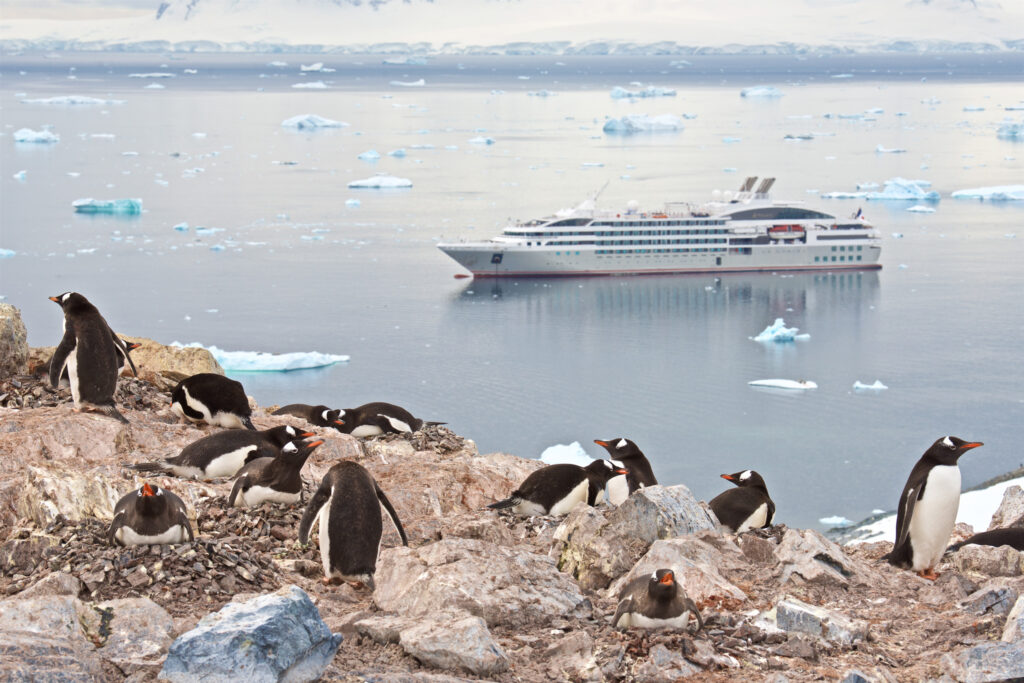
Many reputable and established expedition cruise lines operate in the polar regions and other remote parts of the world.
When choosing your ideal voyage, it’s essential to match your interests to the operator’s style. Some cruise lines are more geared toward adventure activities, while others focus on a luxury experience.
If you are interested in wildlife watching, consider a cruise line with small ships and itineraries focused on animal encounters.
Consider a luxury expedition cruise line if comfort and relaxation are your primary aim.
If you are more of an adventurer like me, choose an expedition cruise line specialising in additional activities such as sea kayaking, ice camping, and longer, in-depth voyages.
It’s worth considering the age and number of years an operator has been in business. Many operators are new to expedition cruising. While delivering an outstanding experience, a cruise line with a long history is always worth considering, especially in the polar regions.
We only recommend a specific operator once we understand your interests, but we work with all the major expedition cruise lines, including National Geographic Lindblad Expeditions, Ponant, Quark Expeditions, Aurora, Viking and Silversea Cruises.
To find out more discover our article 25 Best Expedition Cruise Lines chosen by experts.
Do you need help choosing your expedition cruise line? At Polar Escapes, we offer free, impartial advice to help you find the perfect fit.
What type of people go on expedition voyages?
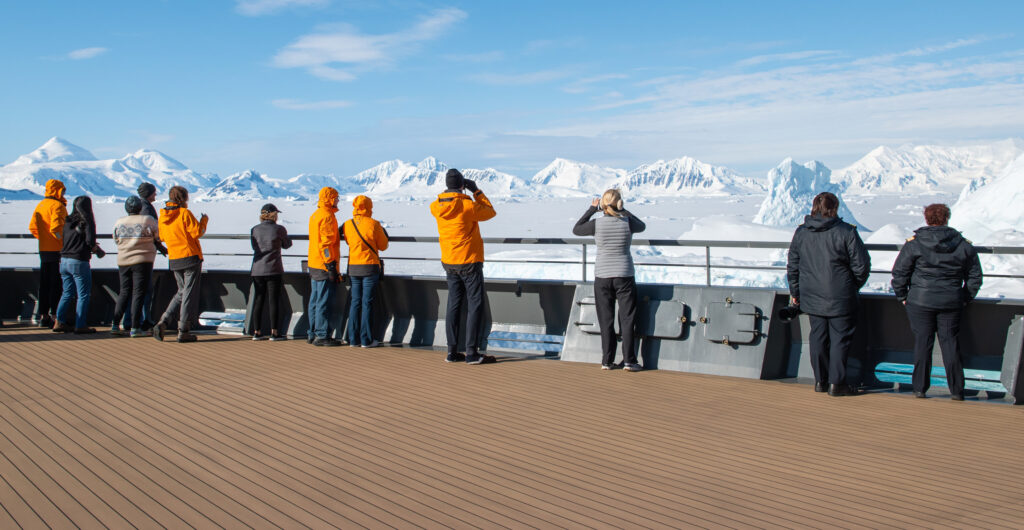
Expedition cruising attracts people from all walks of life, ages, and nationalities.
The average age of travellers is between 40 and 65. In recent years, many younger people have joined trips to the polar regions as the unrivalled nature gains popularity.
It is increasingly attracting solo travellers. New ships offer single cabins and different sharing options for travellers on a budget, and solo travellers will feel welcome onboard.
Travellers to the polar regions often have like-minded interests, and there is great camaraderie between guests onboard. Expedition cruises are generally a friendlier and more social experience than a typical cruise.
Is there an age limit?
There is no specific age limit for the majority of expedition cruises.
It’s important to understand that you must be medically fit to travel to remote regions with limited medical facilities. Good mobility is also advisable so guests can climb in and out of Zodiacs and enjoy hikes ashore.
Some cruise lines have an age limit for children depending on the remoteness of the destination visited.
How much does an expedition cruise cost?
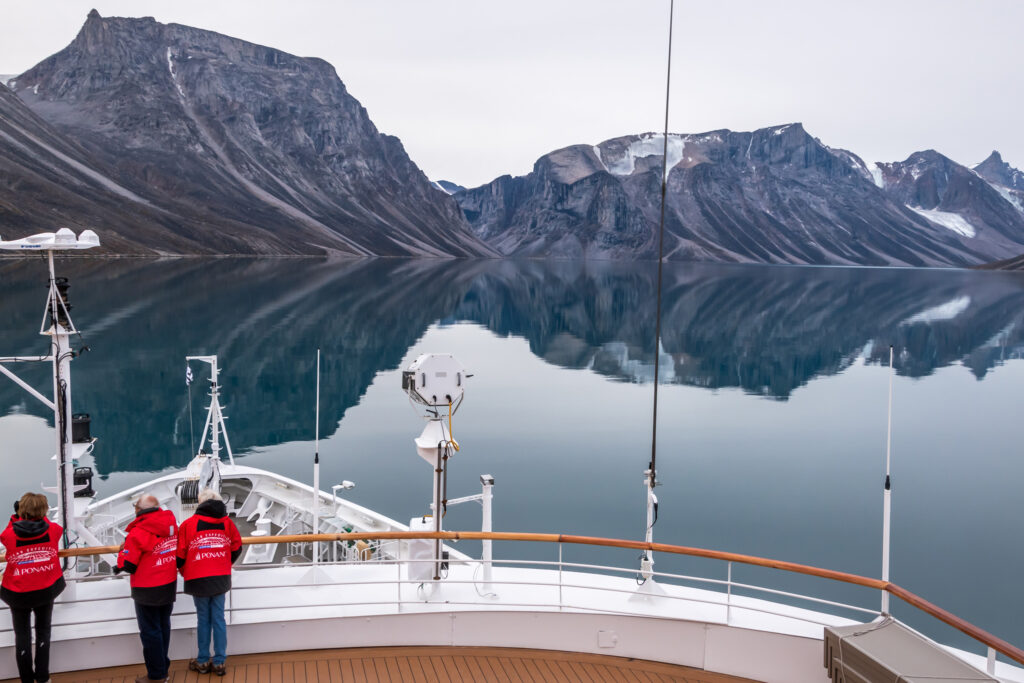
As a rule of thumb, the cost for an expedition cruise starts at £1,000 ($1,250) per person per day in the polar regions. However, prices vary considerably depending on the ship’s age, cabin preferences, and the time of the season you are travelling. As an example, National Geographic expeditions offer cruises to Antarctica starting at
While expedition cruising does appear expensive, consider that it fully includes accommodation, food, zodiac cruises, landings, and, of course, transportation to some of the most remote and awe-inspiring places on Earth, which are otherwise inaccessible.
When budgeting for your cruise, factor in flight costs to and from the departure point. Some itineraries include a flight to the embarkation port. Also, budget for additional activities such as sea kayaking and onboard expenses such as spa treatments and premium spirits.
Expert Travel Tips For Planning Your Expedition Cruise
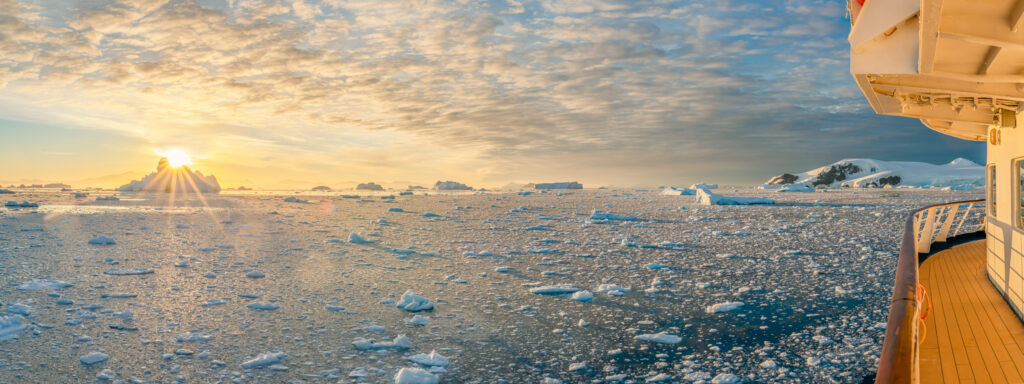
- If you want to maximise your time off the ship exploring, choose a small boat with enough Zodiacs that all guests can be off the ship simultaneously.
- Use our Cruise Search to compare all cruise lines and ships in one place. Remember, booking through Polar Escapes also guarantees you the best price.
- We recommend booking in advance to take advantage of early savings and to secure your preferred cabin. The most popular cruises sell out well in advance.
- Purchase comprehensive travel insurance at the time of booking that covers all eventualities, including cancellation.
At Polar Escapes, we offer the largest selection of expedition cruises and partner with the world’s top operators and cruise lines.
When you book through Polar Escapes, we guarantee you will receive the best price for your expedition cruise. Our service is always included free of charge.
You will also get free, impartial expert advice to help you make the right choice. As an added benefit, 100% financial protection is included at no additional cost.
Do you have some questions? Why not contact our team to plan your next adventure?
Happy Exploring.
Most emails are boring.
Ours are cool.


